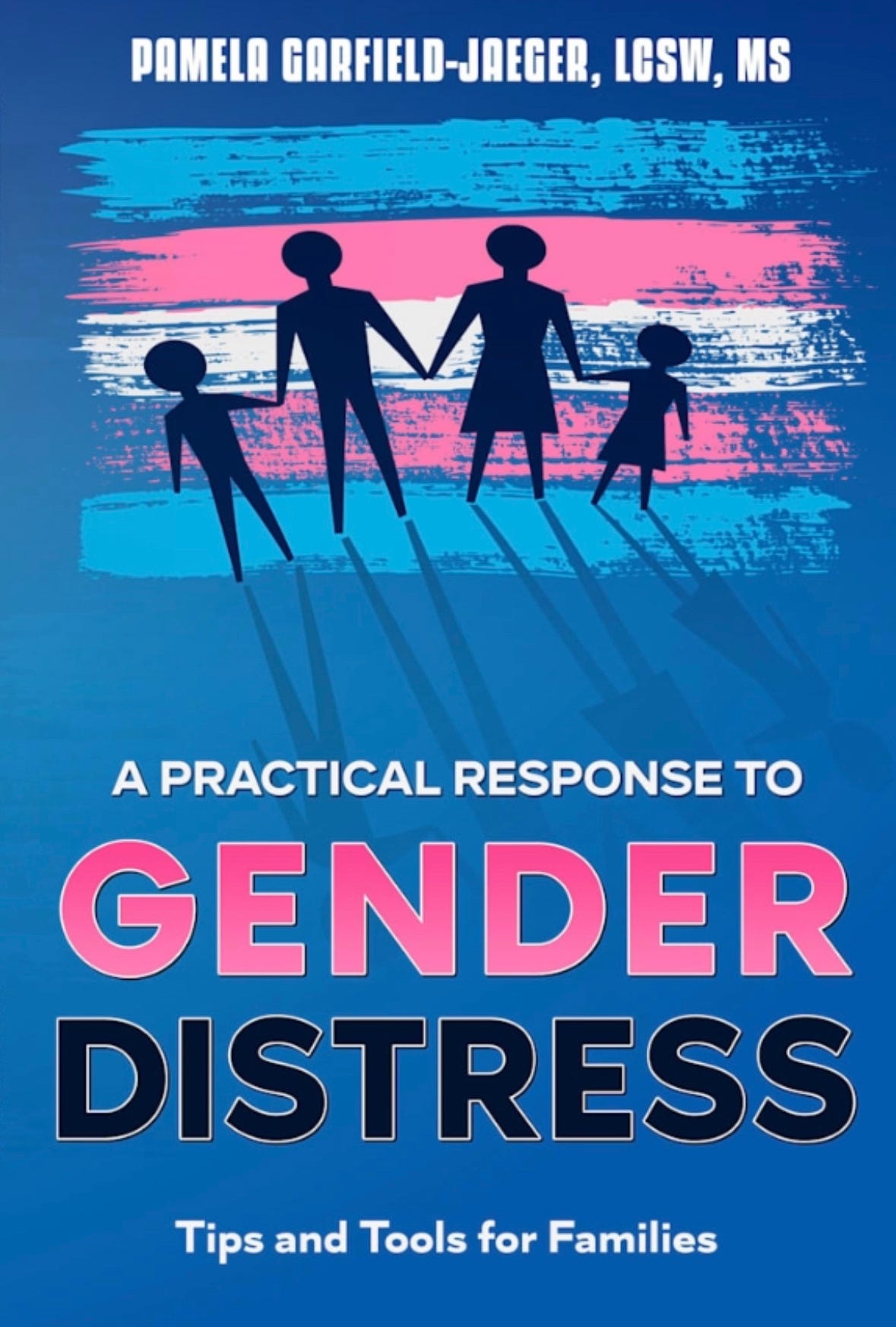Spirituality and Mental Health
The Importance of Incorporating Religion into Therapy
When providing therapy, it is incumbent on the therapist to look at, understand, and treat the ‘whole individual’. Unfortunately, in the world today many people, including therapists, become hyper focused on one aspect of a patient and ignore other components that have a great impact on the health of that patient. Religious beliefs are a primary example of an essential personal trait that is often overlooked, actively ignored, or downplayed. In this essay, I stress the importance of incorporating religious beliefs into therapy to achieve the best possible outcomes for individual.
When a therapist begins to work with you and your family, they should complete an assessment. In doing so, a therapist is building an understanding of both their client's problems or risks and their strengths and 'protective factors’, which can include religious and spiritual beliefs. Unfortunately, many therapists leave that question out of their assessment phase.
According to a September 2021 article by licensed Mental Health and Addiction Counselor Kim Harris, “Most Americans (80%) identify with a religious practice and participate in some form of Christianity. Half of US citizens participate in a religious congregation or community. A growing number participate in non-Christian faiths, and some identify as having no religious preference. Overall, 92% of Americans believe in God.”
A good therapist does not place their values and world-view onto their clients, rather they help their client find their own way. They explore with the client their own beliefs and help that client live the best and most fulfilling life they can. A simple therapeutic model that was widely taught while I was in training is called a “strengths-based perspective”. It's a basic idea, but unfortunately, with today's victim currency, this ideology is getting lost in our professional zeitgeist. According to Psychology Today; “Strength-based therapy is a type of positive psychotherapy and counseling that focuses on your internal strengths and resourcefulness and less on weaknesses, failures and shortcomings.”. ***One of the biggest strengths a patient may have is faith.
Barriers
Many therapists are reluctant to bring religion into their sessions for a few reasons:
They tend to be less religious themselves.
They look at their work as more scientific, concrete and technical which conflicts with religious beliefs.
They feel uncomfortable talking about religion. They fear imposing their beliefs onto a client or fear not knowing enough about the faith of the client to include it in the therapeutic process.
Many early leaders in the mental health field lacked respect for religion which still has an impact today on attitudes towards bringing religion into mental health.
Including religion is not being widely taught in graduate schools so it is often an afterthought overlooked altogether.
However, despite these barriers, religion is still widely used to help people with mental health distress. Belief in God is one of the major protective factors when assessing someone for suicide risk. The 12-step program uses a higher power and religion is usually a large component of addiction recovery. Religious communities such as churches provide a social support that greatly increases mental health outcomes. According to the Harris's article “Talking about Religion and Spirituality in Therapy”, 80% of severely mentally ill patients use religion to cope. There is a lot of research out there that shows that people with religious faith tend to be more resilient.
In a study done by Hubert Jurjewicz entitled “How Spirituality Leads to Resilience, A Case Study of Immigrants” in 2015, the author found, “In this study, just like a majority of other studies in this discipline, spirituality is what breeds resilience through certain mechanism which vary depending on the contexts. Generally, spirituality adjusts the internal conditions as appropriate so that it balances the external environment. Spirituality is an internal drive that determines resilience in individuals. The study focused on immigrants since they are usually confronted with so many challenges, but which in most cases do not deter their existence. It was only important to study how spirituality breeds resilience in their scenario. The various mechanisms through which spirituality leads to theoretical perspectives. What is binding is that spirituality serves to either enhance or suppress internal drives that influence resilience.” It is important for the therapist to understand the religious beliefs and incorporate those into therapy where appropriate.
How faith can be incorporated into therapy:
(Obviously this only applies when the client believes in God, spirituality, a higher power or has a kind of faith. No therapist should impose religious beliefs onto a client. This is written with the assumption that the client does have some type of faith. Please also note that I use ‘God’ in a broad sense and not to denote any specific religion or belief.)
Explore relationship with God. Perhaps they are struggling with their faith or have lost faith in God recently. Perhaps the individual feels angry, conflicted, or abandoned by God due to the adversity they are facing. These emotions can be explored and processed and lead to healing. These are all topics that may benefit a client.
Explore emotions and issues from God's perspective. What does God think? This can be a good way to gain insight.
Regular prayers can be healing. They can be done in session or be encouraged outside of session.
Using God as a guidance. It can be helpful for people to talk to God. They can ask questions or have someone to bounce ideas off. Perhaps that will help them gain answers or insight. God can be used as a support network for someone who feels alone or struggles to speak to other people in their lives. Talking to God may be a lot easier and more healing than talking to humans.
Processing long-term unresolved issues with their relationship with God or religion. It may benefit to explore these issues with a therapist so they can resolve internal conflict. For example, they may feel their religion is too rigid or brings a strong sense of guilt. These are all important topics to discuss if they are related to the issues the client and therapist are working on.
Help people find a higher purpose or guide them in the direction they need to go in. Religion can often help guide people on the right path. Religion can help people rise above the petty struggles of their day and feel gratitude and joy.
Use God for emotional support. Many people are not able to get their emotional needs met (or not be able to receive) from humans in their lives when they are in a vulnerable time. However, they may be able to receive love and forgiveness from God, which can help them on a path to healthier choices.
God can help people forgive themselves and others, which is often the most difficult. These are not easy, and those with stronger faith can usually let go much easier than those with no faith.
God brings hope. Having faith in a higher power can help people get through the most challenging times.
Connecting with others about God. Being part of a church or religious community gives people a sense of belonging, which is very important in human mental health. Those who do not feel they belong anywhere often become victims of predators and/or more likely to make poor choices.
To sum up, regardless of the client's religious background, it is important for a therapist to explore their beliefs are so they can collaborate and work together on a path to healing.
Pamela Garfield-Jaeger is a licensed clinical social worker in California. She completed her MSW in 1999 from New York University. She has a variety of experience in schools, group homes, hospitals and community-based organizations as a clinician and supervisor. Since getting fired for not getting the C*VID vaccine, she has dedicated herself to educate/empower parents and embolden other mental health professionals to challenge the ideological capture of her profession. She provides consultations for parents and has written a parents’ guide to mental health: www.thetruthfultherapist.org.
NEW BOOK COMING SOON:






A couple passages from scripture to consider here:
Romans 8:7 KJV — Because the carnal mind [is] enmity against God: for it is not subject to the law of God, neither indeed can be.
Romans 12:2 KJV — And be not conformed to this world: but be ye transformed by the renewing of your mind, that ye may prove what [is] that good, and acceptable, and perfect, will of God.
Unfortunately for those who don't belong to Christ, "religion" won't fix this but only that "relation". He takes care of those who belong to him.